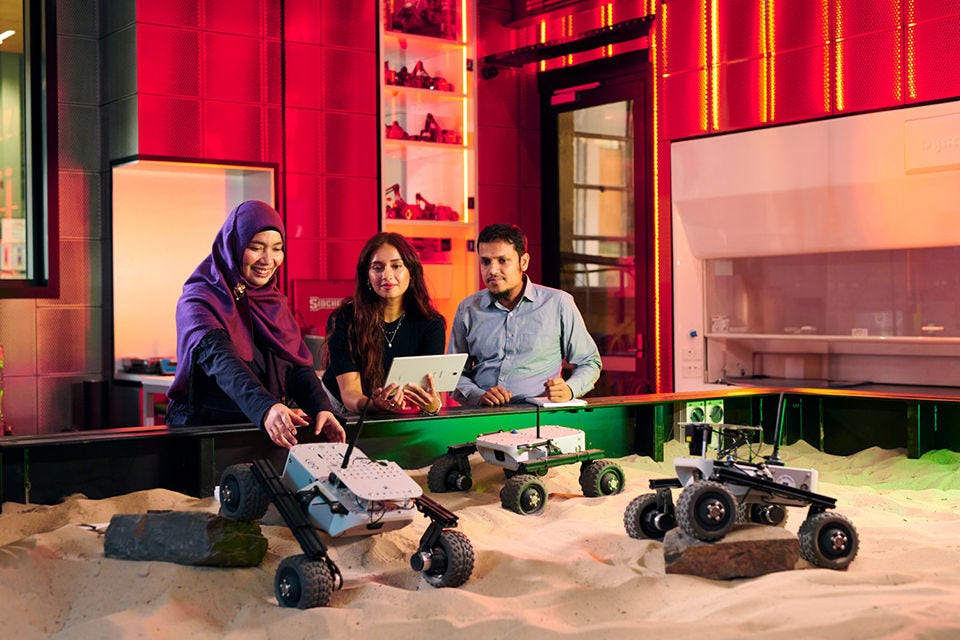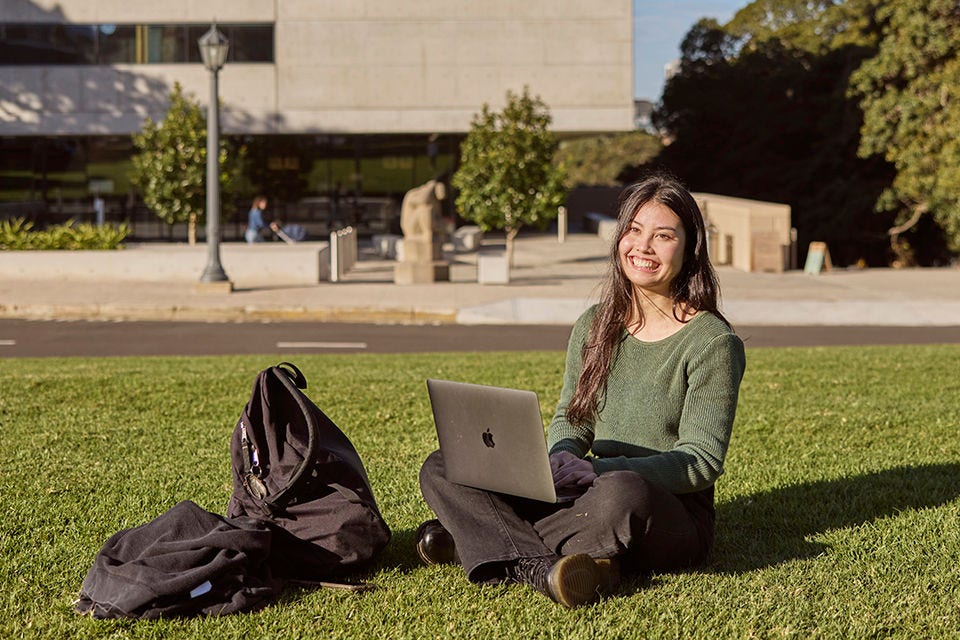
As an international student, choosing what to study in Australia is a big decision.
There are many things to consider, such as your interests, intended career and the skills that are most in demand.
There are steps you can take that will help you find the right course for you.
Step 1: Think about your interests
When you’re passionate about what you’d like to study, your entire study experience will be more fulfilling. If you love what you learn, your wellbeing and overall happiness will benefit.
A genuine interest in your field of study can even lead to better grades . You’ll feel more motivated to ask questions, complete assignments, read more widely and develop additional skills.
For Nishant, an international student originally from Bangladesh, choosing to study a Bachelor of Applied Finance at Macquarie University started with a long-term interest.
“I always wanted to study business-related subjects. I guess that’s because of my father, who is a businessman. I always found his work fascinating.”
One of the many advantages of studying in Australia is the wide variety of areas of study available . Some of these include:
- Arts
- Humanities
- Science
- Mathematics
- Business
- Engineering & IT
- Education
- Medicine & Nursing
- Hospitality & Tourism
When you look at this list, which area of study immediately gets your interest? Whatever that is, it’s probably a great place to start researching your options.
Step 2: Think about your dislikes
While it’s important to prioritise your interests and passions when choosing what to study in Australia, it’s also essential to consider the things you don’t enjoy.
What courses or careers don’t excite or interest you?
Is there a course or qualification that interests you, but when you check the course handbook, you don’t like the subjects needed to complete it? Perhaps there is a career that you’re interested in that could be reached via a related, but different, course.
For example, you might want to become a psychologist because you have a strong interest in helping people. But, you’ve always hated working with numbers. Perhaps you could choose a counselling course that doesn’t involve statistics, but could still provide you with the work life you want.
As you consider what to study, be honest with yourself about what you like and what you don’t like.
Abhijith, an international student from India, says this approach helped him shortlist his course options.
“The thought of being a doctor or an engineer did not interest me at all. After going through my schooling, I understood that a career that focused on the earth and its resources gave me high hopes for the future.”
After this self-reflection, Abhijith felt confident in choosing the Master of Geoscience at The University of Western Australia.
Step 3: Consider your future career
As an international student, you may ask: why study in Australia?
Studying in Australia could be a pathway to staying and working for several years after you graduate. Australia is home to a wide range of creative and innovative industries that international students can immerse themselves in, and key sectors requiring skilled workers.
If taking up post-study work rights opportunities in Australia is something you may be considering, think about what you might want to study to start your career here.
You could do some research on in-demand jobs in the Australian job market. Data sources and dashboards, including the skills shortage research program, can help you choose your course and study location.
Once you know what kind of skills you need in Australia, have a look at the relevant study courses that might interest you. But remember, thinking about what kind of job you want and how that aligns with your dreams, means that you’ll find something you’ll genuinely enjoy for study, and for work.
Step 4: Ask for advice
You don’t have to decide alone. Seek help and talk through your options with your friends, family, classmates, alumni of Australian education providers, your current professors and academic advisers.
If you can, also speak to people who are studying or working in the field that you’re interested in. Their firsthand experience will give you amazing insight into what the industry is like and whether it might be suitable for you.
Step 5: Try to gain some hands-on experience
Whether it’s through part-time jobs or volunteering positions, another way to decide what to study is to get some practical experience in your desired field of study. That’s exactly what Indonesian University of Adelaide student, Neha, did when she was considering a postgraduate degree in Australia.
“I knew I wanted to do something influential in the health sector, but I was not exactly sure at that point in time. So, I worked in different jobs before I decided on a postgraduate degree in public health.”
This hands-on experience helped Neha pick her course. No matter how successful or unsuccessful an experience was, she simply viewed it as a lesson and a helpful way to decide which course to pursue.
Neha’s motto is: “A rejection is just a redirection.”
With a bit of optimism, finding the right course will be much easier.
Use our free resources to help you decide
You can use our personalised Career Matcher tool to find a career that best suits your natural strengths and talents.
You can also search for courses and institutions using our Course Search tool.
There are so many different study locations across Australia, from cosmopolitan cities to unique natural environments. Check out our locations pages to help you decide on where you’d like to study.


